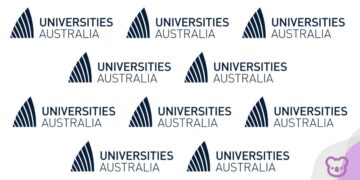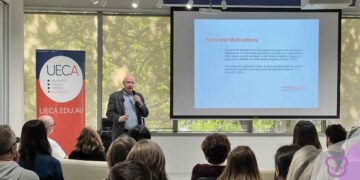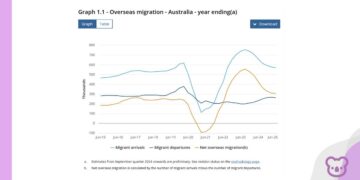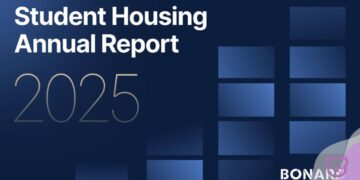Amendments to the Education Services for Overseas Students (ESOS) legislation are being debated in Parliament this week. These amendments include a new education minister power to mass cancel courses for international students.
This power could be used when quality is low, migration law is being broken, or the course doesn’t match Australia’s skills needs.
The proposed power duplicates other laws on these matters, but does so in a way that risks punishing education providers for the sins of others.
A mass course cancellation power
If the ESOS amendments pass the education minister could simultaneously suspend or cancel ESOS course registrations at multiple providers.
This power would expand on existing laws that take a course-by-course or provider-by-provider approach. The ‘ESOS agency’ (TEQSA in higher education, ASQA in vocational education) can suspend or cancel the registration of specific courses or specific providers. The immigration minister can intervene where migration laws are being broken.
The regulatory unit in the proposed power is a ‘class of courses’. The class can be specified by reference to the kind of course, the kind of provider, the location of the course, or any other circumstances applying in relation to the course.
The breadth of the minister’s power is limited by three broad rationales for cancellation. These are standard of delivery, skills needs, and the public interest.
Standard of delivery
For the standard of delivery criterion to apply there must be ‘systemic’ issues with the courses. This sets an imprecise but fairly high threshold for action.
The bill sets out matters that the minister ‘may have regard to’ including completion rates and transfers from or to the course.
Despite course quality being the issue a key difference between this bill, and a similar bill last year that was blocked by the Senate, is that it no longer requires the minister to consult TEQSA or ASQA.
The minister must instead consult ‘such persons or entities’ as ‘the minister considers appropriate’ from a list in a legislative instrument made by the minister.
While the minister probably would add TEQSA and ASQA to his list, not requiring consultation with them weakens the bill. It raises doubts about the credibility of evidence used in decision making. It could also mean that courses cancelled by the minister under ESOS for alleged ‘standard of delivery reasons’ would still be registered under other legislation for domestic students. That would be a confusing regulatory stance for students.
Skills needs
A class of courses can be cancelled if they ‘provide limited value to Australia’s current, emerging and future skills and training needs and priorities’.
But Australia’s skills needs are irrelevant to international students unless they plan to migrate to Australia. Recent Jobs and Skills Australia analysis suggests that 60% plus of international students will return home. Why should international student course choices be restricted to the labour market needs of a foreign country?
If students want to stay they already have strong incentives to take courses favoured in the migration system, which gives priority to skills needs.
Former international students with vocational qualifications cannot remain in Australia on a subclass 485 temporary graduate visa unless their qualification is related to an occupation on the skilled occupation list.
Former international students with higher education qualifications don’t face this limit on their temporary graduate visa, but for longer stays their occupation matters. For a subclass 482 Skills in Demand visa an international graduate needs an occupation on a skills list or to be sponsored by their employer, with labour market testing and minimum salary requirements.
The public interest
If the minister cannot find convincing grounds to cancel a ‘class of courses’ on standard of delivery or skills grounds there is a broad ‘public interest’ provision.
The example given for how this power could be used, in the legislation’s explanatory memorandum, is against ‘courses which are used by students to subvert immigration and education systems’ and ‘courses that are exploitative of their students’.
But the government is not powerless in these situations. Under the existing ESOS legislation the immigration minister can issue a ‘suspension certificate’ to a provider. This can be done in specified circumstances such as fraud in visa applications, students breaching visa conditions, and other visa issues.
If students are exploited by providers another existing ESOS provision allows TEQSA or ASQA, as appropriate, to find that the provider is no longer ‘fit and proper to be registered’. If this happens, the provider’s registration is automatically suspended.
The ‘public interest’ is a vague term that serves to lift restrictions on the minister’s power.
Kinds of providers
Cancelling a ‘class of courses’ punishes all providers offering the course when only some may have the problems – low quality, migration issues – triggering the cancellation. There is however scope for restricting suspensions and cancellations to a ‘kind of provider’.
The bill pre-emptively excludes Table A (public) universities. The bill’s explanatory memorandum claims that they have lower integrity risks. Yet the government does not give all Table A universities the lowest migration risk rating. On standard of delivery, students at Table A universities are routinely less satisfied with the quality of teaching than students at smaller higher education providers.
The point here is not to say that Table A universities are all good or all bad. It is that any category of providers will include institutions with varying performance and compliance levels. Other than assessing providers individually, as under existing law, there is no way regulation by ‘class of course’ can avoid providers being penalised simply because they offer a course in that category.
Proxies for quality or integrity aside, it is hard to argue that graduates in the same field are surplus to Australia’s skills needs if from a non-Table A provider but within Australia’s skills needs if from a Table A provider.
The rule of law
Although exercise of the minister’s power to cancel classes of courses is not completely without checks and balances it has significant rule of law issues.
It gives the minister broad discretion to personally decide what courses should not be offered, making the law hard to know. It does not apply the law equally, exempting Table A universities. It would punish all providers with some shared characteristic for the failings of some.
Rules specifically targeting clearly-defined wrongdoing are much better from a rule of law perspective. That’s the current ESOS Act 2000 approach. The government has not made a persuasive case for change.
Andrew Norton is a Professor of Higher Education Policy in the Monash Business School at Monash University.
A longer version of this analysis is available here.





















